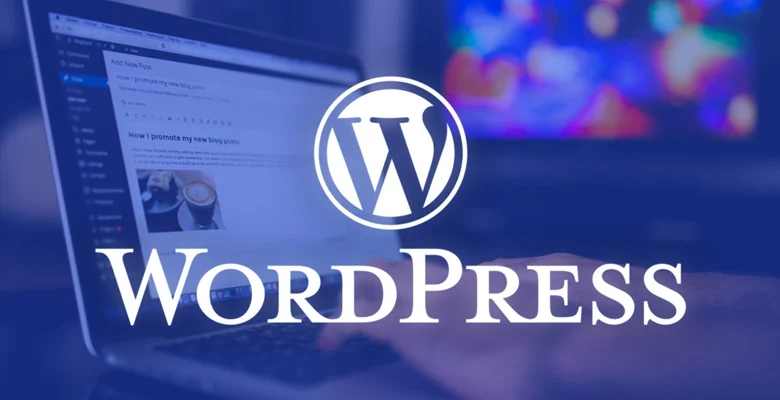Companies are always looking for ways to get an online competitive advantage. Choosing the best website development platform is essential for small businesses with little funding to succeed.
Even if a lot of alternatives have been developed over the years, WordPress has remained a popular option for small businesses trying to build a strong online presence.
The reasons WordPress is still a well-liked choice for small business owners in 2023 are examined in this essay.
1. WordPress is scalable and reasonably priced.
WordPress’s affordability is one of the reasons it’s dominating the SMEs market. Anyone can download, install, and modify the core software without paying a licence fee because it is free and open-source.
2. The interface of WordPress is user-friendly.
WordPress is renowned for having an intuitive user interface. A WordPress-created website can be easily maintained by someone with little technological expertise. Small company owners may create and change content, add new pages, upload media, and adjust the look and feel of their websites with ease by navigating the admin dashboard. By doing this, small businesses may concentrate on other crucial facets of their operations while saving time and money.
3. There are numerous customisation choices available with WordPress.
With dozens of themes and plugins at its disposal, WordPress provides unmatched personalisation possibilities. Small businesses may simply customise their websites to meet their distinct corporate identity by selecting from a wide range of themes.
But that’s not all. With the help of plugins, a WordPress website’s functionality may be expanded to include crucial functions like contact forms, e-commerce, SEO optimisation, and more. With so many customisation choices available, SMEs can quickly and easily design a website that satisfies their unique needs.
4. WordPress has robust SEO features.
WordPress is the finest content management system for SEO for a variety of reasons, one of which is that it provides a strong platform for website optimisation. Because WordPress themes have clean code, it’s easy for search engines to crawl and index the website. Additionally, a number of SEO plugins are available to assist small businesses in increasing the visibility of their websites in search engine results. Businesses may boost their online visibility and draw in more potential clients by utilising WordPress’s SEO skills.
5. Mobile-friendly and responsive design is embodied by WordPress.
More than ever, responsive and mobile-friendly websites are essential. The responsive design of WordPress themes guarantees that websites work and look good on a range of screen sizes and devices. For small businesses trying to meet the needs of their diverse clientele, this mobile-friendly design is a must.
6. Problems with WordPress frequent upgrades and security elements
WordPress is always changing. The platform is now more stable, secure, and performant than ever thanks to frequent upgrades to its core software, themes, and plugins. Additionally, WordPress provides a number of security measures to guard websites from threats, including user authentication, access controls, and automatic backups. The availability of these upgrades and security measures is crucial for small businesses to maintain the functionality and security of their websites.
7. There is a sizable WordPress support community.
Because of WordPress’s widespread use, there is a sizable user, developer, and design community worldwide that is dedicated to enhancing and maintaining the platform. Online blogs, courses, and forums provide small firms with easy access to this expertise. With the help of this support network, even people with little technical knowledge can locate solutions to their problems and ask questions.
8. WordPress makes e-commerce integration simple.
Many small businesses are attempting to integrate e-commerce features into their websites in response to the growing popularity of online purchasing. WordPress makes it simple for smaller businesses to start up and maintain their online stores by offering seamless interaction with well-known e-commerce platforms like WooCommerce.
These e-commerce solutions give small businesses the tools they need to successfully sell their goods and services online. Some of the features they offer are product management, payment gateways, shipping options, and inventory tracking.
9. WordPress provides multilingual assistance
The capacity to serve a worldwide customer base is becoming more and more crucial as firms continue to grow internationally. With a plethora of plugins to assist with multilingual content management and translation, WordPress provides comprehensive multilingual support. By doing this, small businesses can connect with more people, overcome language hurdles, and possibly grow their clientele.
10. WordPress makes it simple to integrate with outside services.
It is easy to integrate WordPress with third-party services, like social networking networks, email marketing systems, and analytics tools, because to its flexibility and extensibility. Small businesses can automate repetitive tasks, improve workflow efficiency, and obtain insightful data about user behaviour and website performance by utilising these connectors.
11. WordPress is a technology that will last.
WordPress continues to be relevant in the rapidly evolving digital scene because of its constant adaptation to the newest developments in web building. With this strategy, small businesses can rest easy knowing that as new technologies are developed, their WordPress websites will still be updated and supported. With WordPress as their preferred website platform, SMEs can invest with confidence thanks to this dedication to future-proofing.
12. WordPress offers content management in addition to blogging.
WordPress began as a blogging platform and has developed into a feature-rich content management system (CMS). Its robust blogging capabilities, which include simple content generation, an integrated commenting system, and sophisticated publishing tools, making it the perfect option for small businesses wishing to engage their audience and share their knowledge.
Moreover, WordPress is compatible with a wide range of media formats, so companies may use multimedia content—like pictures, videos, and audio—to improve their narrative and draw in customers.
13. Custom user roles and permissions are enabled by WordPress
WordPress makes it easy for small businesses to manage user access and permissions. Managing a website may be a team effort. A variety of established user roles, each with specific powers, are available on the platform. These roles include Administrator, Editor, Author, Contributor, and Subscriber. This enables companies to assign tasks and responsibilities to various team members while guaranteeing that each person has the right amount of access to carry out their job efficiently.
14. WordPress is well-known for its performance optimisation and quick loading times.
-
Versatility and Adaptability: WordPress offers versatility to accommodate various business needs and goals. Whether you’re running a blog, an e-commerce store, a portfolio site, or a corporate website, WordPress can be tailored to suit your requirements.
-
Integration with Analytics Tools: WordPress seamlessly integrates with analytics tools like Google Analytics, allowing small businesses to track website traffic, user behavior, and other crucial metrics. This data empowers businesses to make informed decisions and refine their digital marketing strategies for optimal results.
-
Community Support and Collaboration: The WordPress community is vast and supportive, with forums, meetups, and online resources available to assist small businesses. Collaboration within the community fosters innovation, problem-solving, and knowledge sharing, enabling businesses to stay updated on industry trends and best practices.
-
Accessibility and Inclusivity: WordPress prioritizes accessibility and inclusivity, ensuring that websites are usable and navigable for all users, including those with disabilities. By adhering to web accessibility standards, small businesses can reach a broader audience and provide a positive user experience for everyone.
-
Scalability for Growth: As small businesses expand and evolve, their website needs may change. WordPress offers scalability, allowing businesses to easily scale up their websites and add new features as their requirements grow. This scalability ensures that businesses can adapt to market demands and seize growth opportunities effectively.
-
Continuous Innovation: WordPress is committed to innovation and staying ahead of technological advancements. With regular updates, new features, and improvements, WordPress ensures that small businesses have access to cutting-edge tools and functionalities to stay competitive in the digital landscape.
For websites to operate better and draw in more people, search engine rankings must be raised. WordPress provides a strong base for websites that load quickly by default.
For even more performance optimisation, you can add plugins and adhere to best practices on your WordPress website. Code minification, image optimisation, and caching are a few of the plugins that can be helpful. Small businesses can make sure that their website runs quickly and effectively and gives users a great experience by putting these performance optimisation tactics into practice.
This blog is powered by Circle Out IT Solutions





